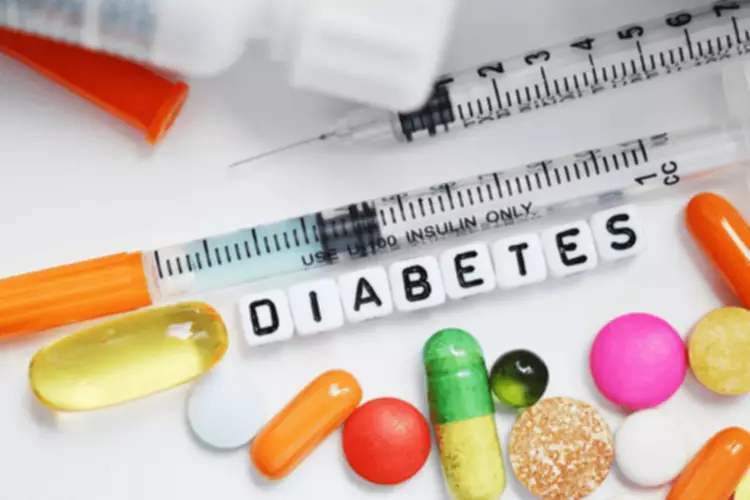Women and Alcohol: Risks, Benefits and Why We’re Different Center for Women’s Health

An increase in hormones during this time means some women will experience an increase in alcohol’s effects for more extended periods. Blood flows through muscle and fat at different speeds, with muscle having better flow, which allows alcohol to become more diluted. Blood flowing through fat is slower, making alcohol more concentrated in those areas. Men tend to have more muscle than women, and women tend to have more fat than men. Therefore, alcohol remains in a woman’s body longer, increasing the effects of alcohol quicker than it does in their counterparts. Women who drink excessively or for long periods can experience brain damage sooner than men who drink comparatively.

Gene May Protect Against Alzheimer’s Disease, and Other Science News

Receive free access to exclusive content, a personalized homepage based on your interests, and a weekly newsletter with topics of your women and alcoholism choice.
- Women’s hormones play a significant role in how alcohol affects them, especially before and during their menstrual cycle.
- For one, studies show that there may be sex differences in alcohol pharmacokinetics.
- The first step in getting help is to recognize the hidden risks of alcohol use for women.
- In the treatment program, she saw other women in their 20s struggling with alcohol and other drugs.
Differential Access to and Quality of Care
You and your community can take steps to improve everyone’s health and quality of life. Some people who identify as being part of a sexual or gender minority group are also more likely to engage in these behaviors, like drug use or having sex without protection. A browsable, illustrated one-stop shop for reliable, updated information on the signs, symptoms, tests, treatment and prevention of many common health conditions, from hiccups to cancer. Oregon Health & Science University is dedicated to improving the health and quality of life for all Oregonians through excellence, innovation and leadership in health care, education and research. To better understand why women are more vulnerable to the risks of alcohol we spoke to Kathleen Grant, Ph.D., a senior scientist and head of the Division of Neuroscience at the Oregon National Primate Research Center. Dr. Grant has spent over thirty years researching the risks and benefits of alcohol consumption.

Drinking Regardless of Consequences
She adds that more research is alcoholism treatment necessary to make these tests more accurate and widely available. Monitoring Risk Currently, healthcare providers rely on self-reporting to assess a person’s risk for alcohol abuse, a process that Dr. Grant says is subjective. “The reality is that alcohol impairs memory, that many people don’t understand what defines a standard drink or they don’t want to disclose what they drink” she adds. Focusing on the positives of not drinking in excess – like lower risk of disease, better mental health, better-quality sleep and a healthy weight – can help make cutting back a little easier. In Cooper’s teenage years, alcohol helped her overcome social anxiety, she says.
To find out, Columbia Magazine spoke with Katherine Keyes ’10PH, a professor of epidemiology at the Mailman School of Public Health and an expert on the health risks of our new drinking habits. It’s unrealistic to think we’re going to read these facts and never drink again. There are many ways to have a healthy relationship with alcohol, without experiencing any of the negative side effects that come with prolonged, excessive drinking. Too much alcohol can affect a man’s chance of successful conception, as research shows it can slow and even damage healthy sperm.

Together, =https://ecosoberhouse.com/ you can work toward a healthier and happier future. If you have a loved one who is exhibiting signs of AUD, it’s important to address the problem as soon as possible. Approach them with love and care, and express your concern for their well-being. Encourage them to seek help from a medical professional, therapist, or addiction treatment specialist.
- The Hormone Connection Dr. Grant is taking a closer look at the role female reproductive hormones (specifically, progesterone) play in alcohol consumption and alcohol sensitivity.
- However, more research is needed to determine the specifics.
Particular alcohol risks in women
“We anticipated finding some increase in hospitalizations for alcohol related complications among women. We didn’t realize it would be this stark,” said Dr. Bryant Shuey, University of Pittsburgh Medical Center assistant professor of medicine and internal medicine and lead author of the study, in a press release. Every four minutes, someone in the world dies from drug or alcohol addiction, and the trend doesn’t seem to be slowing down. Because there’s no scientifically proven ‘safe’ amount of alcohol exposure for a foetus, health guidelines say it’s best to avoid alcohol while trying to conceive and during pregnancy.
Helping Someone with a Drug Addiction
It’s important to note that the severity of the withdrawal symptoms will differ from one woman to another. It all depends on the length of the alcohol abuse, the amount that was consumed, and other factors. Much like with other drugs, it’s easy to develop a tolerance to alcohol. Someone who has built up their tolerance will need to drink more and more in order to feel the effects of alcohol. In extreme cases, an overdose can be life-threatening and deadly.
コメントを残す